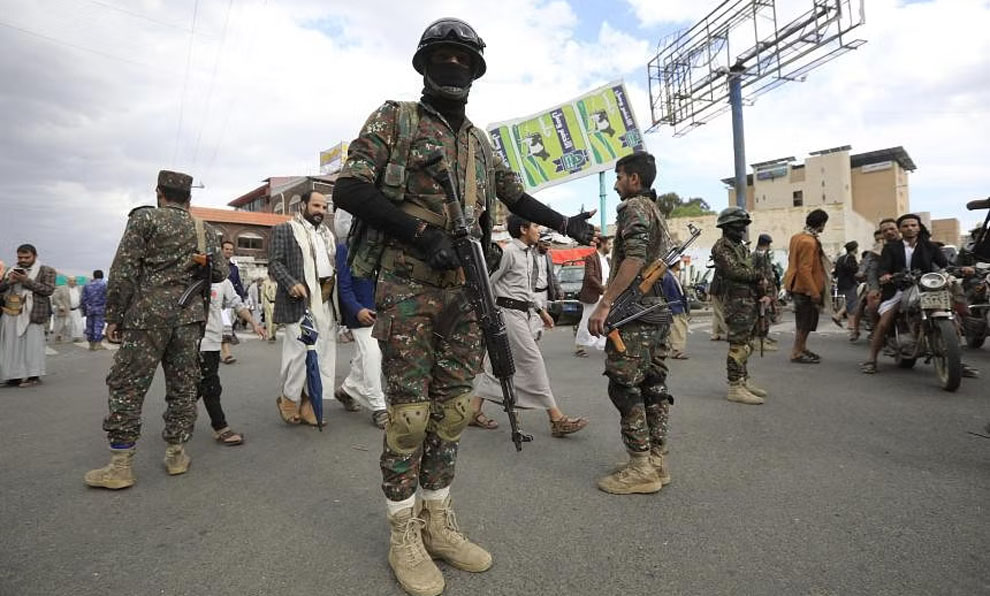International
Worry as Israel bombs Gaza on Sallah Day

Worry as Israel bombs Gaza on Sallah Day
Israeli strikes hit Gaza on Wednesday as Muslims marked the end of the holy fasting month of Ramadan and after US President Joe Biden labelled Israel’s approach to the war a “mistake”.
Tens of thousands also flocked to Israeli-annexed east Jerusalem’s Al-Aqsa mosque compound where one worshipper, nurse Rawan Abd, said: “It’s the saddest Eid ever… you could see the sadness on people’s faces.
“Usually we come to Al-Aqsa to celebrate, this year we came just to support each other,” the 32-year-old said at Islam’s third holiest site, which is also revered by Jews as the Temple Mount.
Israeli forces kept up combat operations and air strikes on Gaza a day after Prime Minister Benjamin Netanyahu vowed no let-up in the campaign to destroy Hamas and bring home the hostages.
Netanyahu insisted that “no force in the world” would stop Israeli troops from entering Gaza’s far-southern city of Rafah which is packed with displaced Palestinians.
His threat came amid ongoing talks in Cairo involving US, Egyptian and Qatari mediators for a truce and hostage release deal.
Biden, voicing his growing frustration with hawkish Netanyahu, issued some of his sternest criticism yet of the war, which has brought mass civilian casualties and widespread suffering.
“I think what he’s doing is a mistake,” Biden told Spanish-language TV network Univision in an interview that aired Tuesday night after being recorded last week. “I don’t agree with his approach.”
READ ALSO:
- Dollar bribe: Ganduje, wife, son, five others to be arraigned April 17
- Family kicks as Otun Balogun insists Olubadan-designate unfit to rule
- Obasanjo calls for restructuring of Nigeria
He urged Netanyahu to “just call for a ceasefire, allow for the next six, eight weeks, total access to all food and medicine going into the country.”
‘Famine-like conditions’
The war broke out with Hamas’s October 7 attack against Israel, which resulted in the deaths of 1,170 people, mostly civilians, according to Israeli figures.
Palestinian militants also took about 250 hostages, 129 of whom remain in Gaza, including 34 the Israeli army says are dead.
Israel’s retaliatory offensive has killed at least 33,360 people in Gaza, mostly women and children, according to the Hamas-run territory’s health ministry.
Another 14 people were killed – including small children – in a strike on a home in Nuseirat camp in central Gaza, the health ministry said.
The army said Wednesday that “Israeli troops are continuing to operate in the central Gaza Strip and killed a number of terrorists over the past day”.
It added that aircraft had “struck dozens of terror targets in the Gaza Strip, including military sites, launchers, tunnel shafts and infrastructure.”
Israel has imposed a siege that has deprived Gaza’s people of most food, water, fuel, medicines and other essential goods.
Humanitarian groups have accused Israel of using starvation as a weapon of war in Gaza, where UN experts say half the population is facing “catastrophic” food insecurity.
Washington’s recent tougher line with Israel, its main ally in the region, has brought some results, according to the US Agency for International Development.
Recent days had seen a “sea change” in aid deliveries, said USAID administrator Samantha Power, with Israel reporting 468 trucks entering from Egypt on Tuesday.
However, Power stressed that Israel needs to do more, saying that “we have famine-like conditions in Gaza, and supermarkets filled with food within a few kilometres away” in southern Israel.
Washington has also resumed funding to the UN agency for Palestinian refugees after cutting it weeks ago after Israel claimed that some UNRWA staff took part in the October 7 attack.
Worry as Israel bombs Gaza on Sallah Day
International
UK says it’s developing radio frequency to blast out drones

UK says it’s developing radio frequency to blast out drones
The United Kingdom is making strides in military technology, developing a cutting-edge weapon using radio waves to counter drones.
Known as the Radio Frequency Directed Energy Weapon (RFDEW), this innovative system utilizes radio waves to disrupt or damage critical electronic components of enemy vehicles and drones, halting their operations or causing them to fall out of the sky.
Operable across land, air, and sea, the RFDEW boasts a range of up to 1 kilometre, with potential for future extensions. Its development follows UK Prime Minister Rishi Sunak’s commitment to increasing defence spending to 2.5% of GDP by 2030.
With an estimated cost of 0.10 Pounds (0.12 dollars) per radio waveshot, the RFDEW offers a cost-effective alternative to conventional missiles and holds promise for effectively countering drone swarms.
READ ALSO:
- Portable out with new song after leaving police custody
- Troops kill ISWAP’s bomb squad commander
- Many students injured as OAU lecture hall ceiling collapses
Utilizing a mobile power source, the technology generates pulses of radio frequency energy in a directed beam, capable of delivering sequenced shots to single or multiple targets. It can be mounted on various military vehicles, enhancing flexibility and adaptability on the battlefield.
Minister of State for Defence Procurement James Cartlidge highlighted the significance of such advancements in enhancing the effectiveness and safety of UK armed forces. He emphasized the importance of defending against unmanned systems, especially in light of recent global conflicts.
The RFDEW system will undergo rigorous testing with British soldiers during summer. Developed under Project Hersa by a collaborative team from the Defence Science and Technology Laboratory (DSTL) and Defence Equipment & Support (DE&S), in partnership with UK industry, this technology represents a significant leap in military capability.
DSTL chief executive Paul Hollinshead underscored the transformative impact of such systems, emphasizing their potential to provide decisive operational advantages and enhance national security. He credited decades of research, expertise, and investment in science and technology for enabling the development of world-class capabilities like the RFDEW.
UK says it’s developing radio frequency to blast out drones
International
Just in: In assassination attempt, Slovakia’s Prime Minister shot multiple times

Just in: In assassination attempt, Slovakia’s Prime Minister shot multiple times

Robert Fico, Slovakia’s prime minister, has been taken to hospital in a “life-threatening condition” after he was shot multiple times on Wednesday.
According to his official social media account, the 59-year-old leader was hit in the abdomen outside the House of Culture in the town of Handlova.
Police have detained a suspect. There was no immediate information on the motive.
Reuters reported Zuzana Caputova, President of Slovakia, as condemning the “brutal and ruthless” attack on Fico.
She said in a televised statement, “A physical attack on the prime minister is, first of all, an attack on a person, but it is also an attack on democracy.”
The Russian ambassador to Slovakia Igor Bratchikov also condemned the shooting of Fico.
“I strongly condemn this act of violence and express my conviction of the necessity of punishment for the perpetrators,” Bratchikov said in a letter to Fico that the Russian embassy shared on its Facebook page.
Fico, a third-time premier with the left-wing Smer (Direction) party, won Slovakia’s September 30 parliamentary elections, staging a political comeback after campaigning on a pro-Russian and anti-American message.
International
Updated: Three years after separation, Melinda resigns as co-chair of Bill & Melinda Gates Foundation

Updated: Three years after separation, Melinda resigns as co-chair of Bill & Melinda Gates Foundation
Melinda French Gates said on Monday she would resign as co-chair of the Bill & Melinda Gates Foundation that she helped lead for about 24 years.
In May 2021, the couple announced their plans to divorce after 27 years of marriage. Despite their breakup, they agreed to continue working together at the foundation.
But that other agreement has broken down too.
“After careful consideration and reflection, I have decided to step down from my role as co-chair of the Bill & Melinda Gates Foundation,” Melinda, 59, wrote in a statement on Instagram on Monday, May 13.
“My last day at the foundation will be June 7.”
As part of her separation agreement from former husband and founder of Microsoft, Bill Gates, Melinda said she would receive additional $12.5 billion for her charitable work.
READ ALSO:
- Tragedy strikes as Customs officer kills self in Abuja
- Korra Obidi faces backlash for Hawaii trip after receiving $50,000 in donations
- Korra Obidi faces backlash for Hawaii trip after receiving $50,000 in donations
According to her, she plans to put the funds in her next venture of helping women and their families.
“I will tell you more about what this will look like in the near future,” she added.
Melinda also said, “This is not a decision I came to lightly.
“I am immensely proud of the foundation that Bill and I built together and of the extraordinary work it is doing to address inequities around the world.”
Three years after separation, Melinda resigns as co-chair of Bill & Melinda Gates
-

 Business21 hours ago
Business21 hours agoDollar crashes against Naira at official market
-

 News11 hours ago
News11 hours agoUpdated: Reps condemn assault on Nasarawa female doctor by patient family
-

 Aviation14 hours ago
Aviation14 hours agoUpdated: We’ll resume Lagos-Dubai flights on October 1, says Emirates
-

 metro22 hours ago
metro22 hours agoThree police officers sentenced to life imprisonment in Anambra
-

 Auto2 days ago
Auto2 days ago150 OEMs, others set for Lagos motor fair, Africa autoparts expo
-

 News19 hours ago
News19 hours agoWike, Fubara are ego-driven, crude – Reno Omokri
-

 metro2 days ago
metro2 days agoNigerian who killed wife in UK bags life jail
-

 Education2 days ago
Education2 days agoBREAKING: ASUU threatens fresh nationwide strike over federal varsities’ condition





















